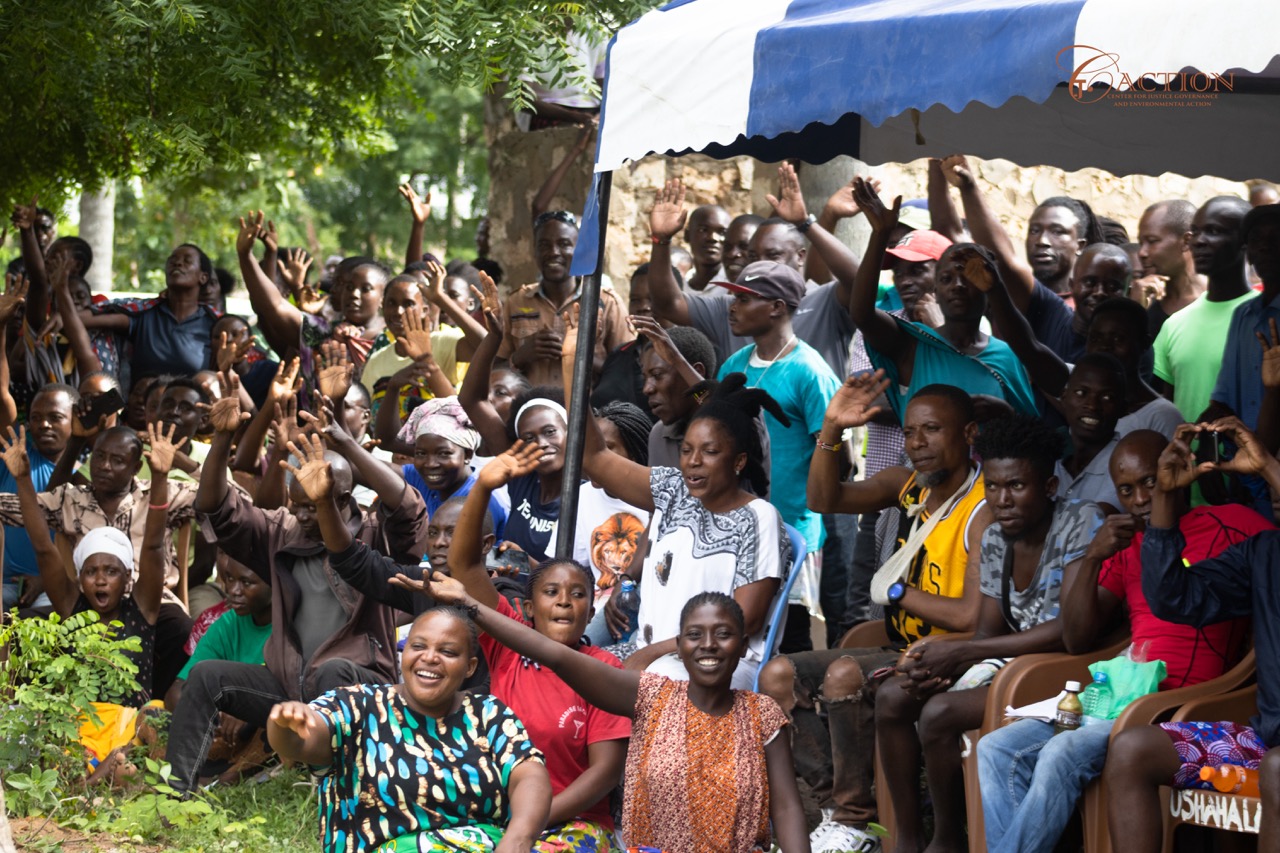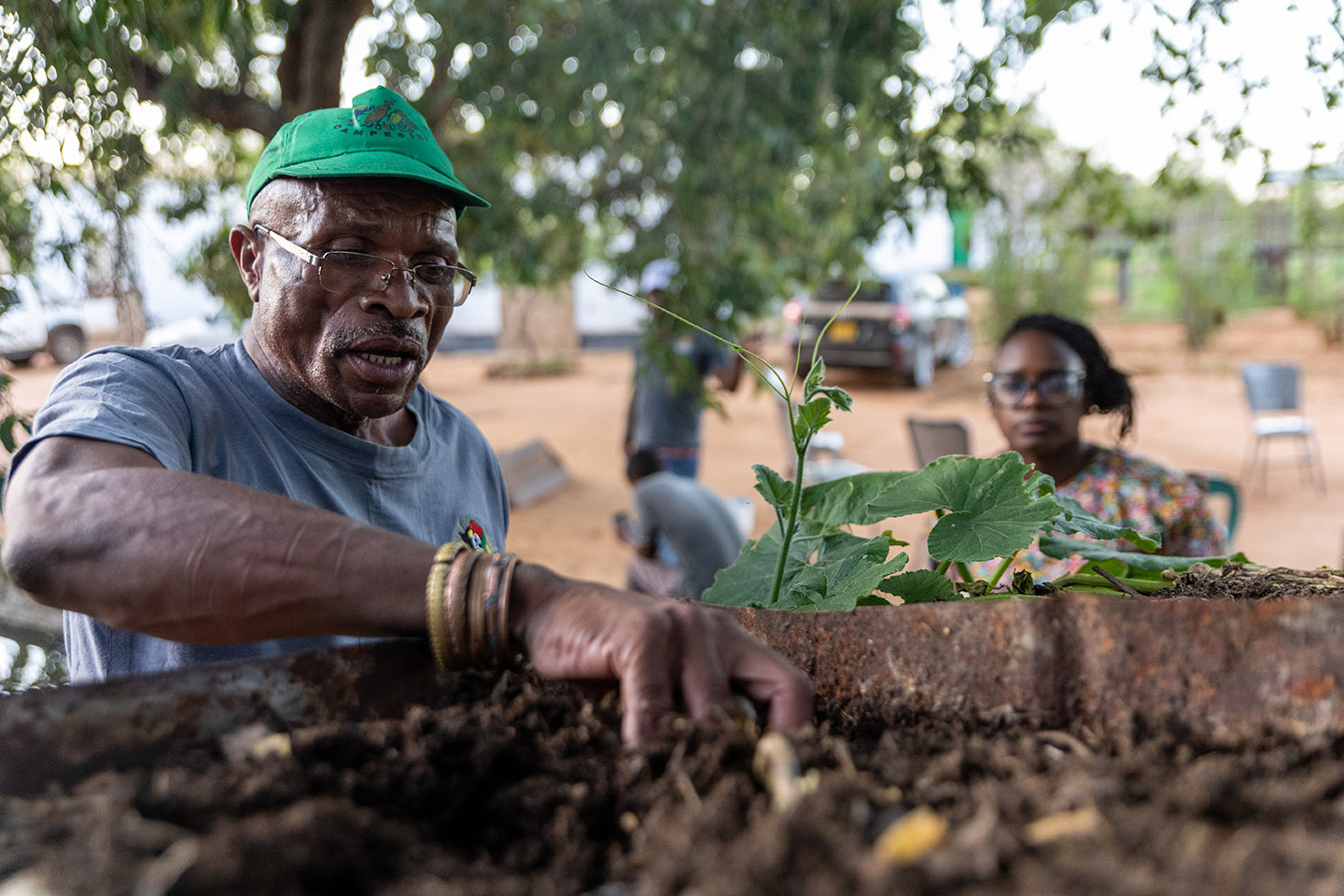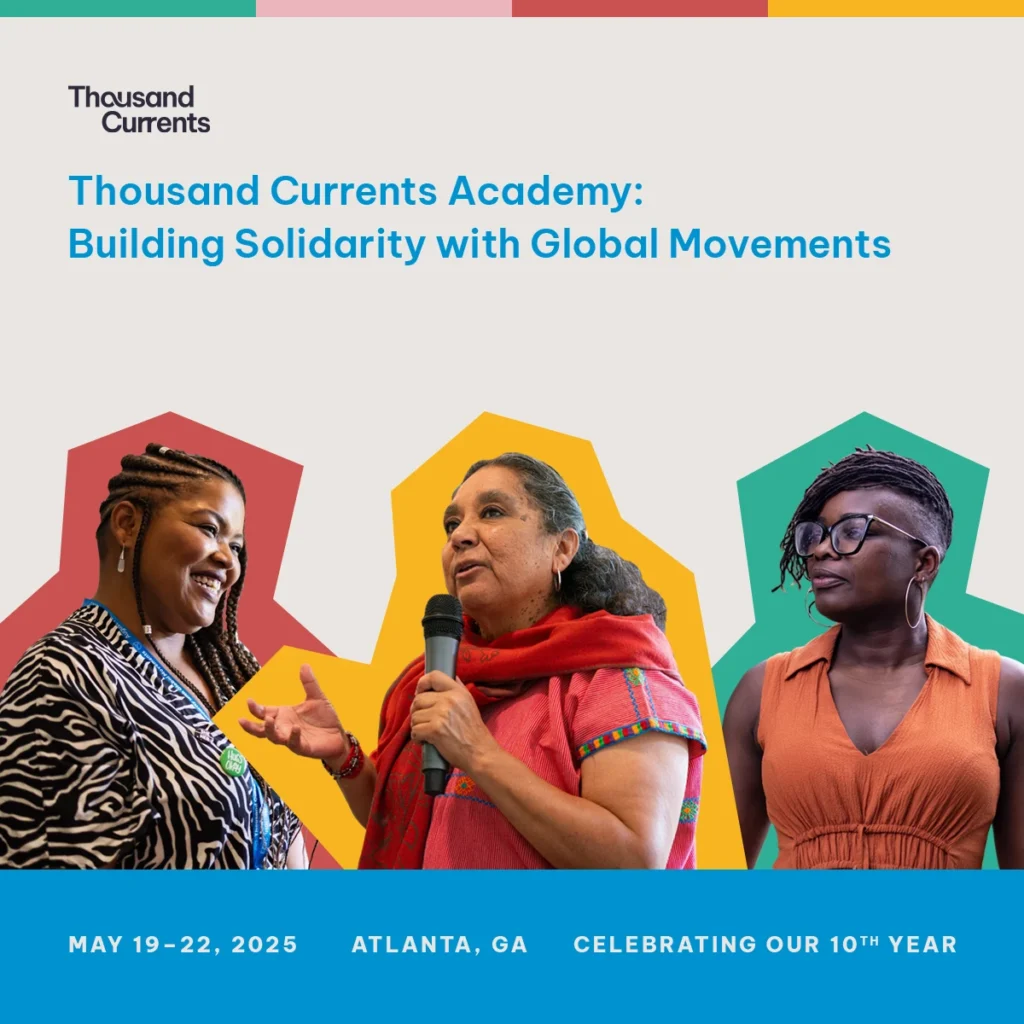Compounding Crises in Central America
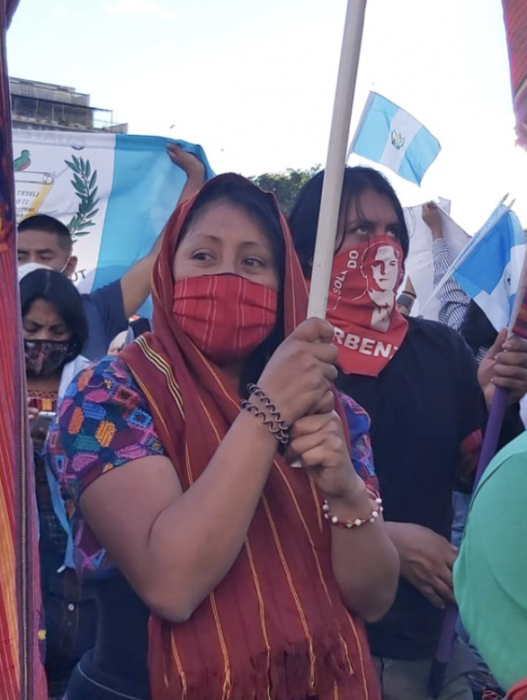
By Jamie San Andrés, Former Program Manager, Latin America
In the sacred Mayan text Popul Vuh, the word ‘hurricane’ means “heart of the heavens.” Yet when hurricanes Eta and Iota arrived in Central America a few weeks ago, they were not merciful, making countries like Guatemala, Honduras, and El Salvador receive the most serious natural disasters in its history. Not only did these two back-to-back hurricanes disappear entire communities, but they destroyed crops and worsened food insecurity. In Guatemala, beans have rotted due to the heavy rains, herbs have succumbed to the cold, 80% of corn has been lost, and the price of basic goods like onions, carrots and potatoes have gone up. The aftermath of these hurricanes is expected to further hamper food production and insecurity, especially in places where the COVID-19 pandemic exacerbated severe hunger. Just earlier this year, people were taking to the streets with white flags to signal that they needed food in Guatemala.
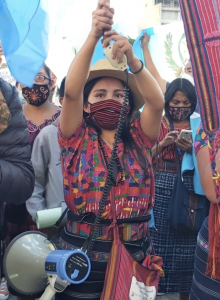 At the same time, the high concentration of people living in shelters can lead to more COVID-19 cases, and make medical care near impossible in a broken health care system. In November, just two days after Guatemala had been hit by its second hurricane, Guatemala’s congress passed a budget that cut $25 million from La Gran Cruzada por Nutricion, an institution that combats hunger and malnutrition—while allocating $64,000 for Congress members’ personal meals. In the middle of a global pandemic, funding for hospitals was also cut by $75 million and corruption was exposed, leading to massive nationwide protests that set Congress aflame.
At the same time, the high concentration of people living in shelters can lead to more COVID-19 cases, and make medical care near impossible in a broken health care system. In November, just two days after Guatemala had been hit by its second hurricane, Guatemala’s congress passed a budget that cut $25 million from La Gran Cruzada por Nutricion, an institution that combats hunger and malnutrition—while allocating $64,000 for Congress members’ personal meals. In the middle of a global pandemic, funding for hospitals was also cut by $75 million and corruption was exposed, leading to massive nationwide protests that set Congress aflame.
How did we get here?
To understand these current events, we must look back at the history of U.S. imperialism and its relationship to food production. As one example, the U.S. was involved in a CIA-orchestrated coup to crush the Guatemalan revolution, whose main tenet was land and agricultural reform. Land reform was a threat to the U.S. because the American-owned United Fruit Company, now known as Chiquita, was the largest landowner in Guatemala and paid its workers 50 cents a day.
By 1960, civil war and genocide would ensue in Guatemala and ultimately leave less than 2 percent of the population controlling more than two-thirds of the land — after nearly 20 years. By 1996, more than 200,000 peasants, activists, and Indigenous peoples were murdered. Our partner Comite Campesino del Altiplano (CCDA), founded during the worst period of the Guatemalan civil war, had many members kidnapped, killed, or sent into exile by the government. They made no secret of standing against social movements and peasants who were fighting for human rights.
Today, according to the Union Bank of Switzerland, 0.001% of the Guatemalan population owns more than half of the country’s wealth, most of which still comes from a model that allows multinational food corporations and wealthy landowners to control land and make profits off exploiting peasants. CCDA continues their fight for the improved living conditions of Indigenous farmers, global change in the social, economic and political spheres, and respect for the cultures, language(s), traditions and territories of these communities.
Yet, there is concern that due to the severity of these conditions, migration to urban areas and the Global North may persist or increase.
Migration & Climate Change
In order to understand the relationship between migration and hurricanes Eta and Iota, we must examine the consequences of climate change. Whereas hurricanes would previously come and go quickly, they now remain on land for longer periods of time—wreaking more havoc. Due to resource exploitation, natural barriers that would typically protect Central America have also been eroded and depleted, and because of deforestation, winds also gain strength on empty, barren lands.
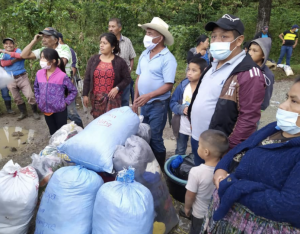 The reality is that this is nothing new. According to Honduran journalist Carlos Martinez, when Hurricane Mitch hit Honduras in 1998, it left 300,000 people homeless and destroyed nearly 75 percent of the streets. This devastation led to vast urban migration where young boys were recruited into growing gangs like Barrio 18 and Mara Salvatrucha. Consequently, many families sought to flee the vast poverty and violence and relocated to the Global North — further compounding a geopolitical situation.
The reality is that this is nothing new. According to Honduran journalist Carlos Martinez, when Hurricane Mitch hit Honduras in 1998, it left 300,000 people homeless and destroyed nearly 75 percent of the streets. This devastation led to vast urban migration where young boys were recruited into growing gangs like Barrio 18 and Mara Salvatrucha. Consequently, many families sought to flee the vast poverty and violence and relocated to the Global North — further compounding a geopolitical situation.
Today, with 7.3 million people impacted by the aftermath of Eta and Iota, as well as the ripple effects of the COVID-19 pandemic, the economic, political, and social situation will likely worsen in Central America, and lead to even further migration.
Solutions and Support
Across the region, our partners are addressing these challenges head on. The Women’s Commission of Central America, who fight for the rights to life, land, and territory, and other organizations part of Latin American Coordination of Rural Organization (CLOC)-Via Campesina, are fighting back. They are denouncing the lack of social and economic policies in Central America, calling out an abuse of power that hoards land and territories for the expansion of monoculture and extractivism, and organizing support to guarantee recovery in food production.
Instituto para la Superación de la Miseria Urbana de Guatemala (ISMUGUA) which works to improve livelihood conditions of local populations living in urban high-risk areas, is providing humanitarian aid to communities in Alta Verapaz, where homes have gone under water after the back-to-back hurricanes. Similarly, CCDA distributed food and critical goods to communities who were impacted by these climate-induced crises.
In November, Women’s Association for the Development of Sacatepéquez (AFEDES), alongside others, declared another massive protest to demand the purification of Congress, the dissolution of Central American Parliament, and the resignation of Guatemalan President Alejandro Giammattei, the Director of the National Civil Police, and the Minister of the Interior. Comprised primarily of Indigenous Mayan Kaqchikel women, AFEDES continues to fight for their rights while aspiring to live a life free from oppression, violence, discrimination, racism, and exclusion.
No matter the current circumstances or complicated history, our grassroots partners in Central America are going above and beyond to fight for what they deserve. Now is the time to respect the life of the people, support peasant rights, and influence progressive public policies.
Related Stories
